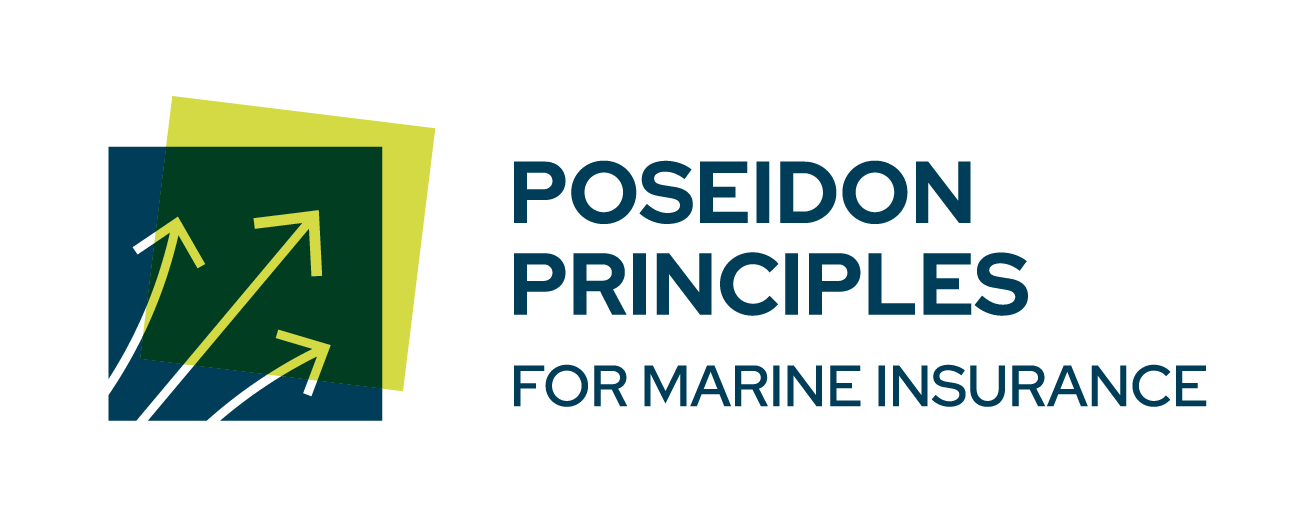How marine insurers are driving transparency and decarbonisation across international shipping
COPENHAGEN, 25 January – The Poseidon Principles for Marine Insurance, an initiative backed by the Global Maritime Forum to drive decarbonisation of international shipping through transparency, has issued its second annual disclosure report. This report arrives amidst a transformative year for the maritime sector marked by key events: the IMO’s adoption of the revised greenhouse gas (GHG) strategy at MEPC 80 in July, and ongoing challenges like congestion, personnel shortages, inflation, and sanctions linked to Russia’s war on Ukraine.
For the second year, signatories submitted two climate alignment scores based on the 50% and 100% CO2 reduction trajectories established against the 2018 IMO and Paris Agreement goals. The 50% CO2 reduction trajectory, as outlined in the 2018 IMO Initial GHG strategy, sets a target for a minimum 50% reduction in absolute CO2 emissions by 2050 compared to 2008. On the other hand, the 100% CO2 reduction trajectory takes steps towards alignment¹ with the Paris Agreement on climate and aims to achieve 100% CO2 reduction by 2050 to limit global warming to well below 2, preferably to 1.5°C, compared to pre-industrial levels.
Delving into the scores of ten marine insurer signatories and the continued support from nine affiliate members spanning nine countries, the second annual report serves as a comprehensive account of the initiative’s journey, shedding light on the ongoing progress toward alignment with the climate ambitions of both the IMO and the Paris Agreement. While more progress is needed, there are positive signals, with two signatories showcasing scores within +5% of the IMO’s ambition, detailing both progress and challenges.
“We are dedicated to fostering continuous learning and progress, with a primary focus on advancing the decarbonisation of the global shipping sector and enhancing transparency,” said Patrizia Kern-Ferretti, Chair of the Poseidon Principles for Marine Insurance. “This report aims to raise awareness of our endeavours, shedding light on the pivotal role marine insurance plays in the industry’s transformation. It also underscores the work demonstrated by a small but growing group of insurers, exemplified through their involvement with the Poseidon Principles for Marine Insurance.”
It’s important to note that comparing scores across different years in the realm of marine insurance isn’t a straightforward process. Vessel coverage within a portfolio composition can vary from year to year and is influenced by factors such as one-year contracts and the “leader follower” mechanism², implying numbers should be considered over a specific period.
“This report reflects commendable levels of data sharing between ship owners and marine insurers, but there is still room for improvement in both data collection and scoring methodologies,” said Rolf Thore Roppestad, Vice Chair of the Poseidon Principles for Marine Insurance. “The active involvement of both signatories and affiliate members plays a pivotal role in raising awareness about the Poseidon Principles for Marine Insurance and, consequently, propelling the industry towards positive change.”
The report highlights the importance of building connections and raising awareness, emphasising the affiliate members’ pivotal contribution to industry transformation. The Poseidon Principles for Marine Insurance will incorporate trajectories aligned with the revised 2023 IMO GHG in the upcoming phase, with checkpoints in 2030 and 2040, employing a comprehensive well-to-wake approach. Priorities involve refining data collection and expanding membership to enhance the initiative’s impact.
The Poseidon Principles for Marine Insurance 2023 Annual Disclosure Report is available for download here.
[1] The 100% CO2 reduction trajectory may not necessarily align with the goal of stabilising global temperatures at 1.5°C. This is due in part to its exclusion of other GHG emissions like methane and does not account for upstream emissions, focusing solely on operational emissions or a tank-to-wake approach.
[2] Claims “leaders” coordinate data collection: sharing with claims “followers” ensures confidentiality and reduces administrative burden within a complex coverage system.
For media inquiries, please contact:
Molly P. Hannon, Senior Communications Manager – mph@globalmaritimeforum.org
+45 5376 6787
About the Poseidon Principles for Marine Insurance
The Poseidon Principles for Marine Insurance is a framework for measuring and reporting the alignment of marine insurer’s hull & machinery portfolios with climate goals. Recognising the marine insurance industry’s role in promoting responsible environmental stewardship throughout the maritime value chain, the Poseidon Principles for Marine Insurance equip stakeholders with tools to foster collaboration with clients, acquire insights for enriched strategic discussions, and tackle the challenges posed by climate change.
The Poseidon Principles for Marine Insurance is one of three initiatives based on the same four Principles and developed with the Global Maritime Forum. Together with the Poseidon Principles for Financial Institutions and the Sea Cargo Charter, they share a common objective: fostering transparency on emissions reporting with the aim of contributing to reducing carbon emissions.
Marine insurance involves a collaborative ecosystem where insurance brokers connect insurers with clients seeking coverage for hull and machinery (H&M) of marine vessels. Brokers navigate diverse options, considering coverage specifics and adherence to principles like the Poseidon Principles. Other entities in the marine insurance landscape include captives, providing risk financing for industrial firms, and Protection and Indemnity (P&I) clubs, offering liability coverage on a mutual basis. H&M insurance, covering vessel damage, is a significant component, and understanding the dynamics between “claims leaders” (primary insurers) and “claims followers” (secondary insurers) is crucial for an efficient data collection process. This ecosystem also encompasses cargo, liability freight, and P&I insurance to mitigate various risks associated with shipping, which lie outside of the initiative’s scope.
The 2023 Annual Disclosure Report was produced by the Global Maritime Forum, which performs secretariat services for the Poseidon Principles for Marine Insurance, with expert support provided by UMAS and Swiss Re Institute.
POSEIDON PRINCIPLES
Get in touch
Where to find us
Amaliegade 33 B, 3rd floor
1256 Copenhagen K
Denmark
VAT Number: 43329405



